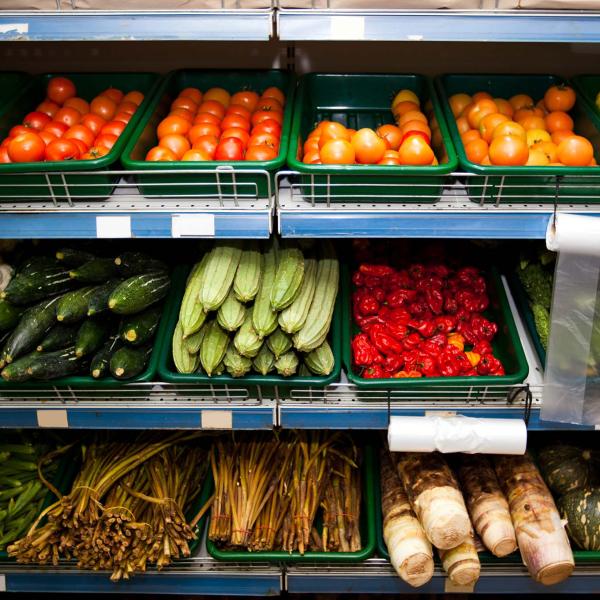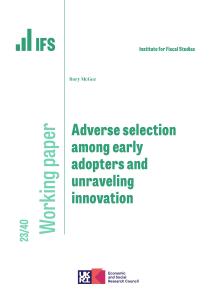We document that within-individual variation in food choices is substantial and has potentially important consequences for nutrition, and hence well-being. We develop an approach that allows us to study the determinants of this within-individual variation within an economic framework and allow for across-individual preference heterogeneity. We show that around one-fifth of within-individual fluctuations in diet quality is explained by standard economic variables (prices and budgets), along with advertising and weather. The residual fluctuations are important and are larger for lower income and younger people, and individuals who state they are impulsive. We propose a two-selves model of food purchase behavior to structurally interpret these empirical patterns. We use nonparametric revealed preference techniques to show that this model rationalizes our food purchase data.
Authors

CPP Co-Director, IFS Research Director
Rachel is Research Director and Professor at the University of Manchester. She was made a Dame for services to economic policy and education in 2021.

Research Fellow University of Wisconsin
Martin, previously Deputy Research Director, is a Research Fellow at IFS and Professor of Economics at the University of Wisconsin.

Research Fellow London School of Economics
Kate is an IFS Research Fellow and an Assistant Professor at LSE, interested in public finance, industrial organisation and applied microeconomics.

Research Associate Katholieke Universiteit Leuven
Laurens is a Research Associate of the IFS and a Professor in the Department of Economics, KU Leuven.

Research Associate Université libre de Bruxelles
Bram is a Research Associate of the IFS, a Professor of Economics at ULB and a Professor of Mathematics and Statistics at KU Leuven.

Research Associate University of Leuven
Frederic is a Research Associate of the IFS, a Professor of Economics at the University of Leuven and a Research Fellow at the CEPR.
Journal article details
- Publisher
- The IFS
- JEL
- C14D12D90I12
- Issue
- Volume 127, June 2020
Suggested citation
Cherchye, L et al. (2020). 'A new year, a new you? Within-individual variation in food purchases' 127(2020)
More from IFS
Understand this issue

What's wrong with inflation?
10 May 2023

Transparency is key to maintaining trust in government. Let’s not cap it
12 September 2022

How should the government tax electric cars?
19 May 2022
Policy analysis

Tax and public finances: the fundamentals
23 August 2023

Poverty
13 July 2023

Living standards, poverty and inequality in the UK: 2023
13 July 2023
Academic research

Longer-term impacts of the COVID-19 pandemic on the dietary purchasing choices of British households
4 April 2024

Saving by buying ahead: stockpiling in response to lump-sum payments
2 February 2024

Adverse selection among early adopters and unraveling innovation
18 December 2023